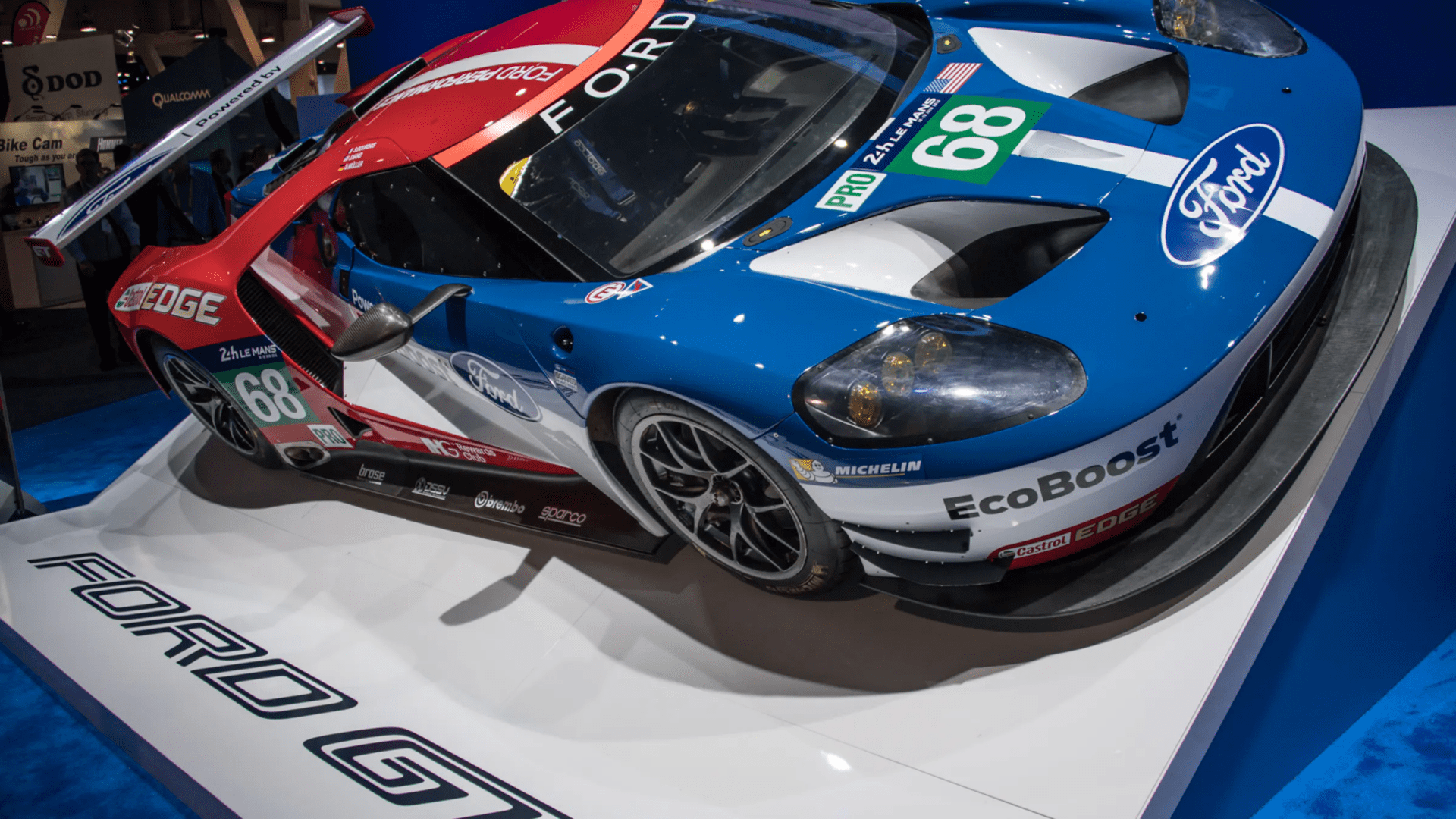
FORD GT RACE & STREET CARS
A close-up look behind the scenes
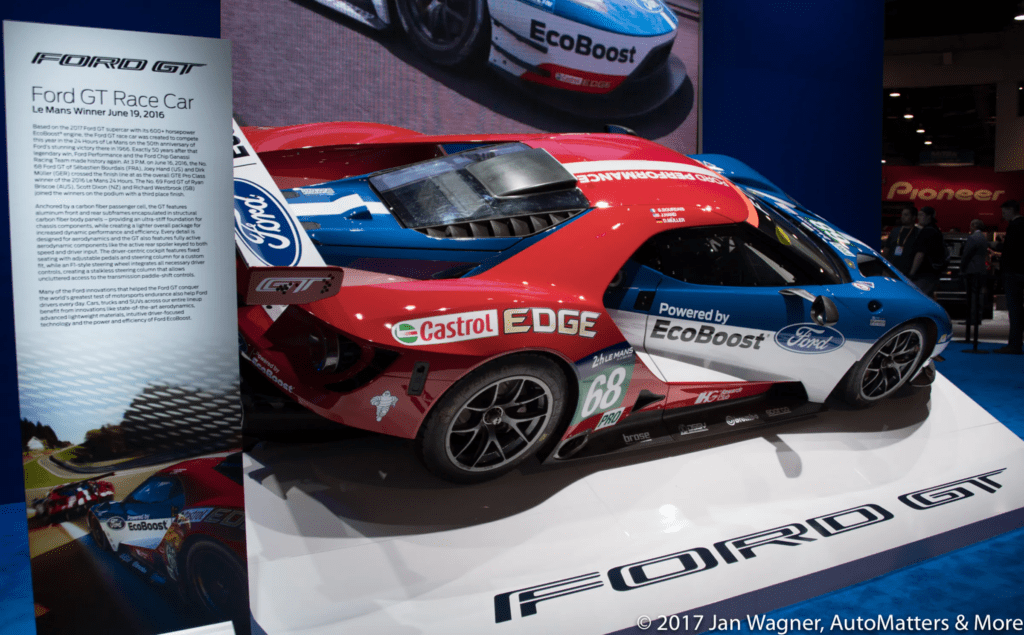
In 1966, Ford’s GT 40 won at the 24 Hours of Le Mans in a celebrated endurance racing victory over mighty Ferrari. 50 years later a new Ford GT – campaigned by Chip Ganassi racing – returned to Le Mans in 2016 and won again (performance.ford.com/series/ford-gt/news/articles/2016/06/ford-wins-le-mans–.html). Sébastien Bourdais (France), Joey Hand (U.S.) and Dirk Müller (Germany) raced their #68 Ford GT to a first place finish in the LM GTE Pro category. Ryan Briscoe (Australia), Scott Dixon (U.S.) and Richard Westbrook (Great Britain) joined their Chip Ganassi teammates on the podium, having brought their #69 Ford GT across the finish line in third place.
Victory was repeated in January in the GT Le Mans class at the 2017 Rolex 24 at Daytona (Florida). After enduring nearly 24 hours of racing, at times through rain so heavy that many of the laps had to be run under yellow (caution), the same three drivers who were triumphant at Le Mans did it again. Their race culminated in a brilliant, extremely close race to the finish by Dirk Müller over a Porsche 911 RSR and a Ferrari 488 GTE (sportscarchampionship.imsa.com/schedule-results/current-results).


The racing and street versions of the Ford GT are wowing crowds on the auto show circuit. At the 2017 Consumer Electronics Show (CES), the racing version was represented by the Le Mans-winning #68 Ford GT. It was displayed as if it were on a high-banked turn, while images of racing were projected in the background.
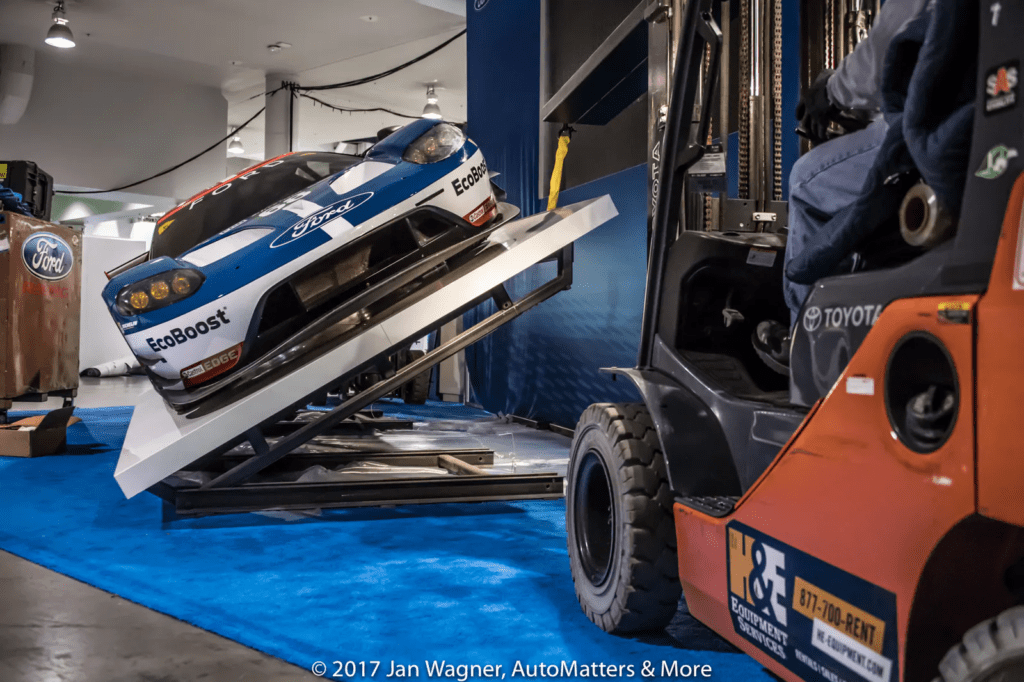
Those present at the end of the final day of the show were treated to close-up views of the car as it was being very carefully removed from the elevated display and rolled through the exhibit hall, out of the Las Vegas Convention Center and onto a waiting transport truck.
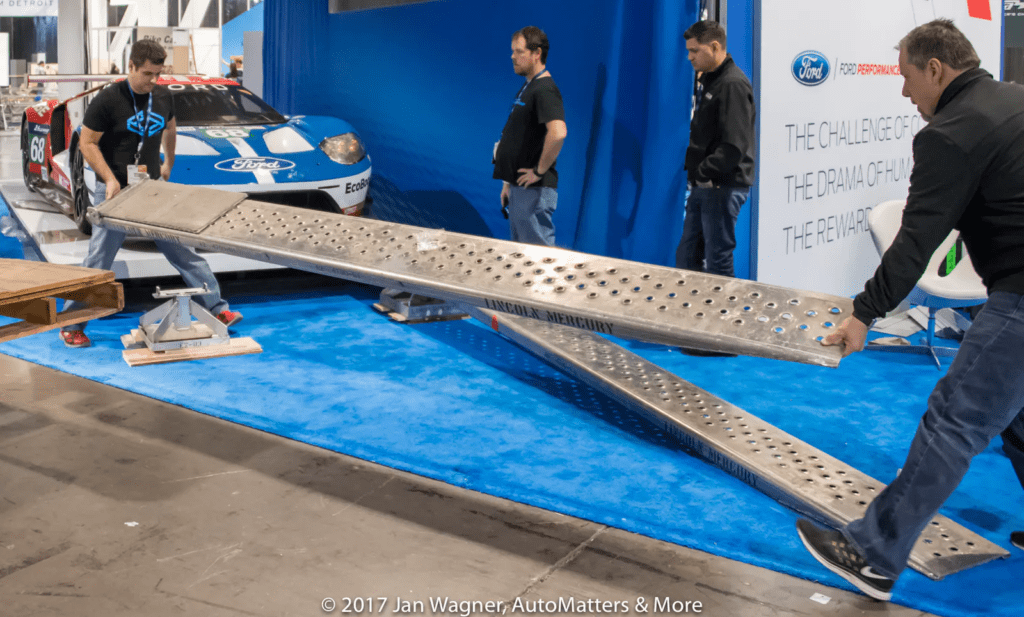
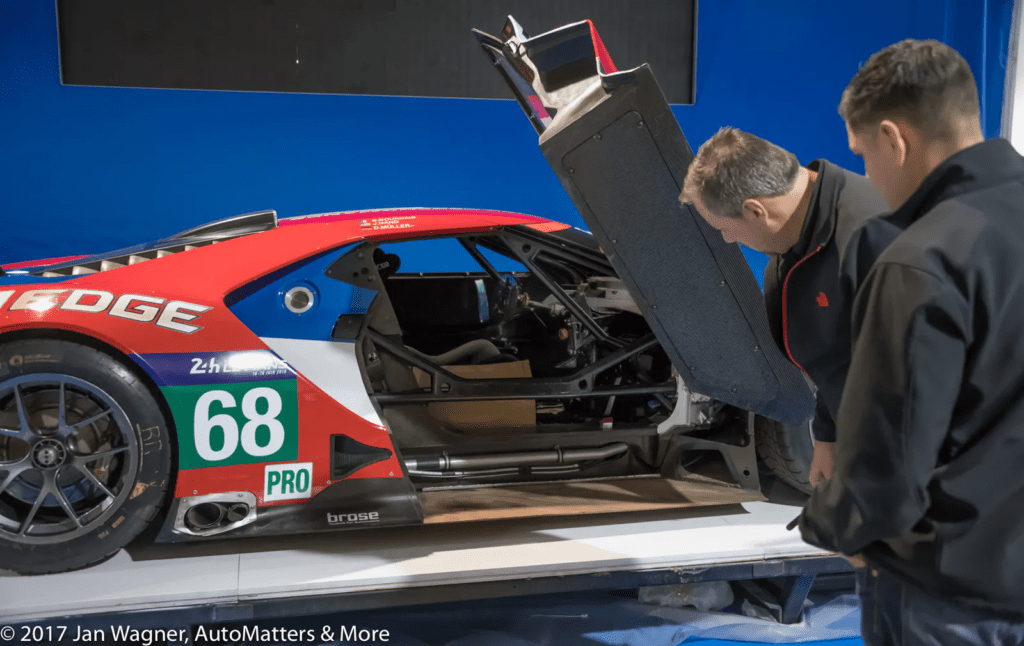
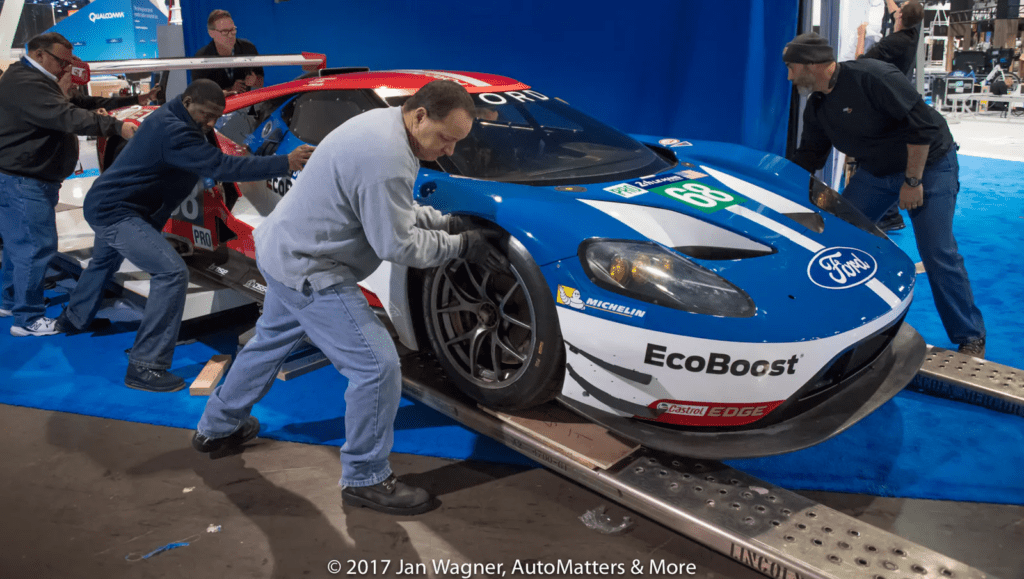
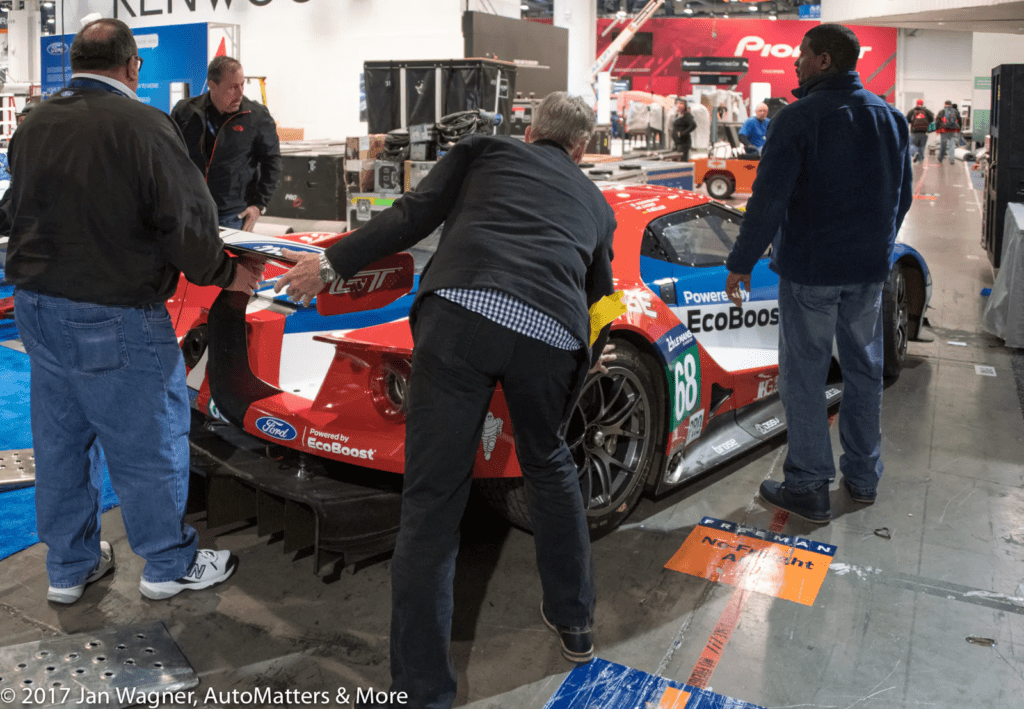
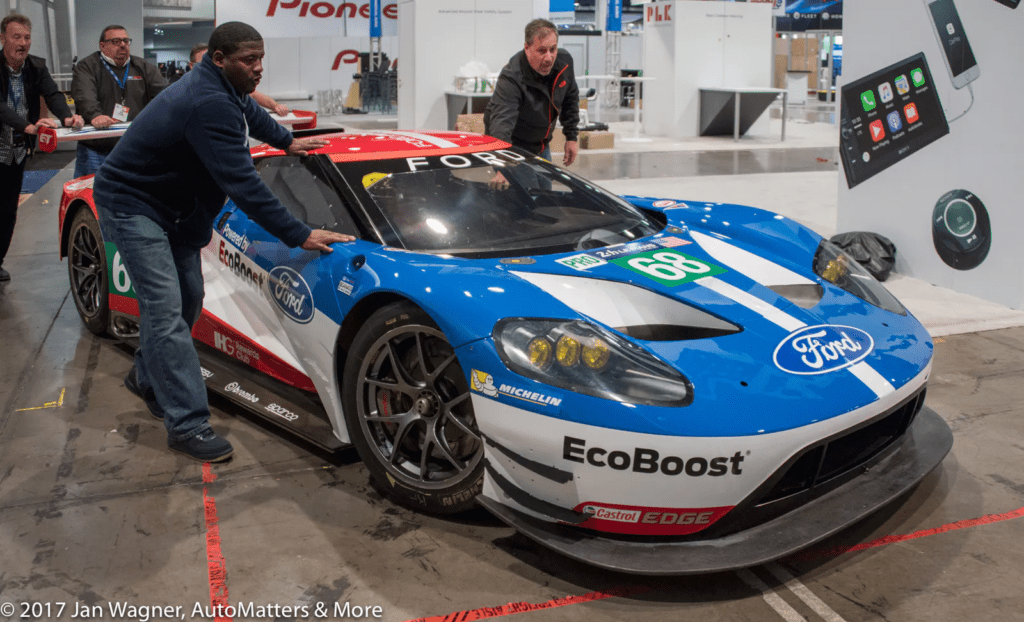
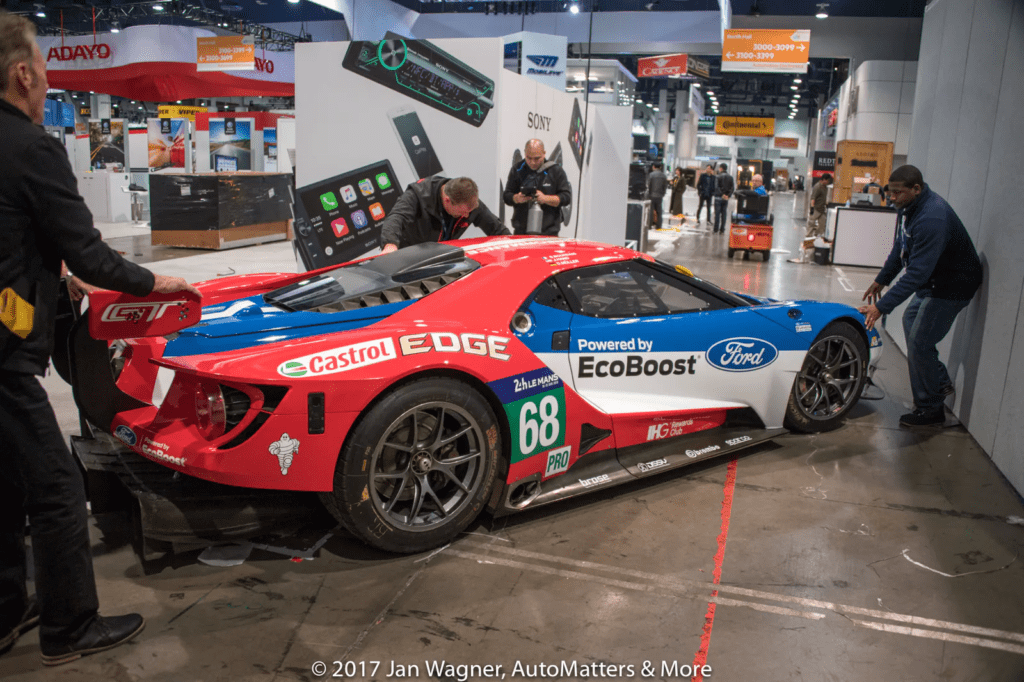
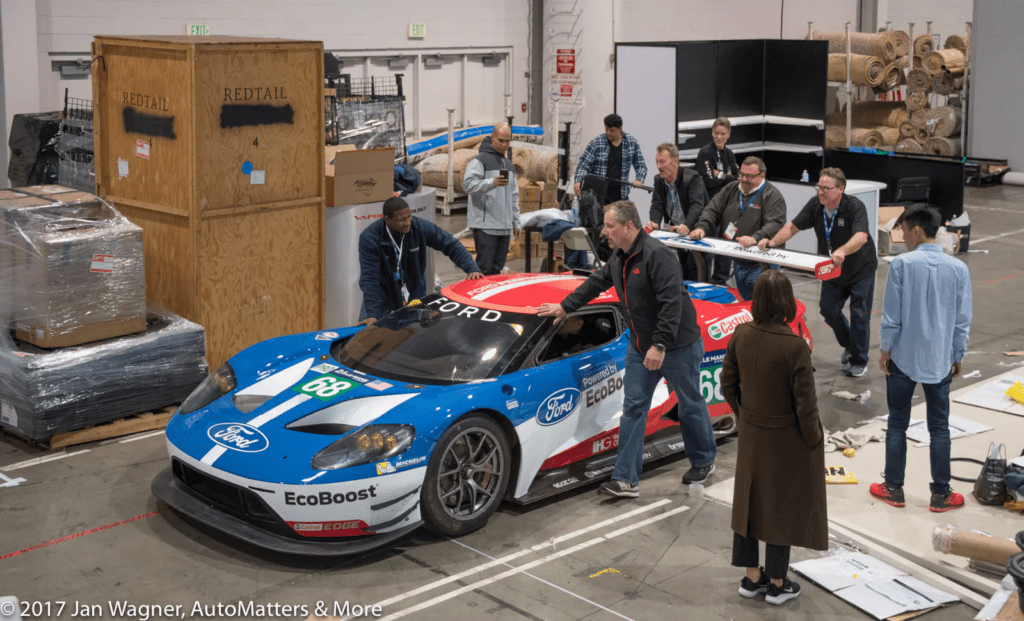
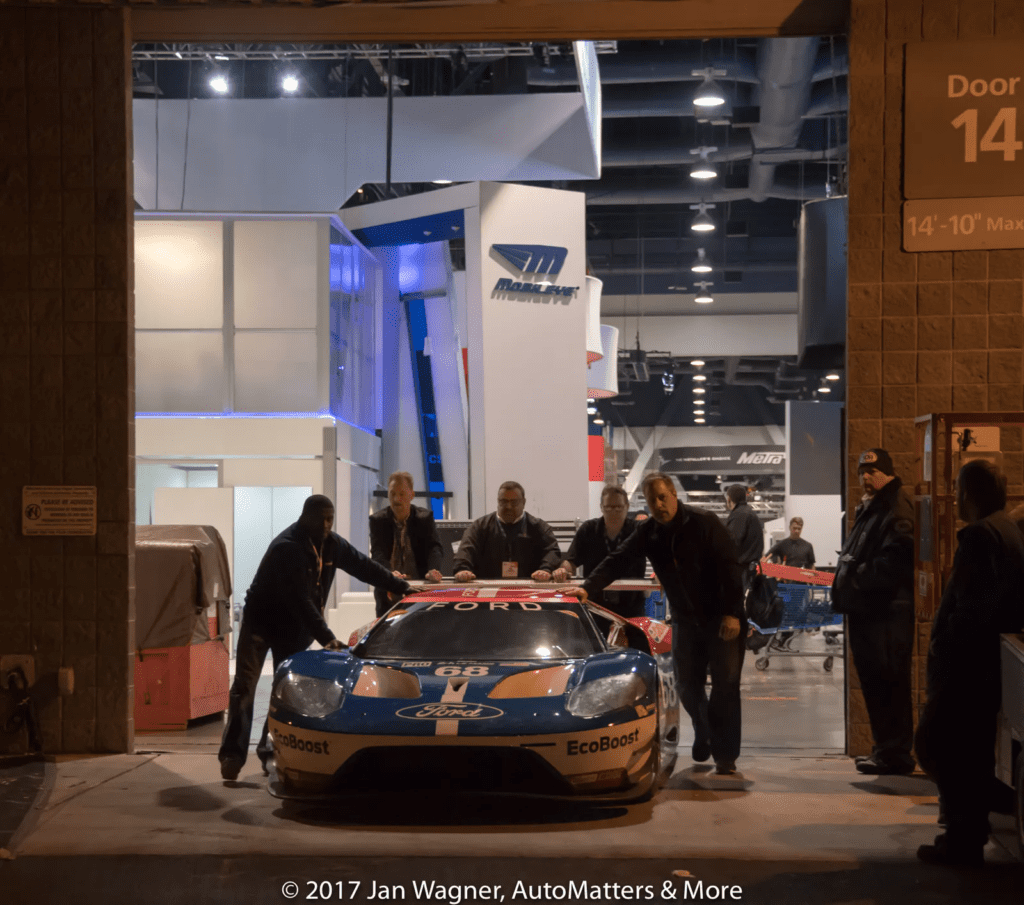
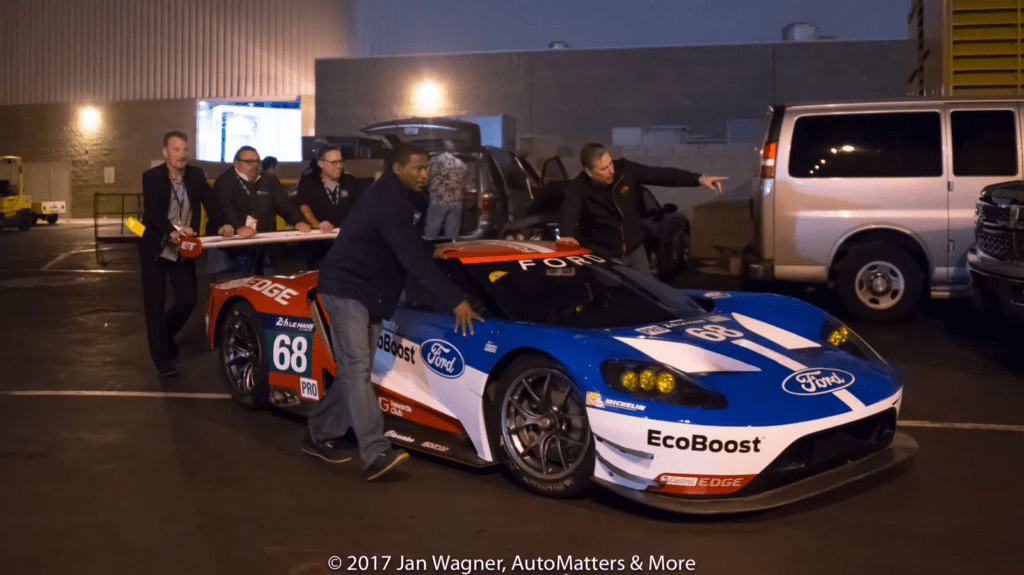
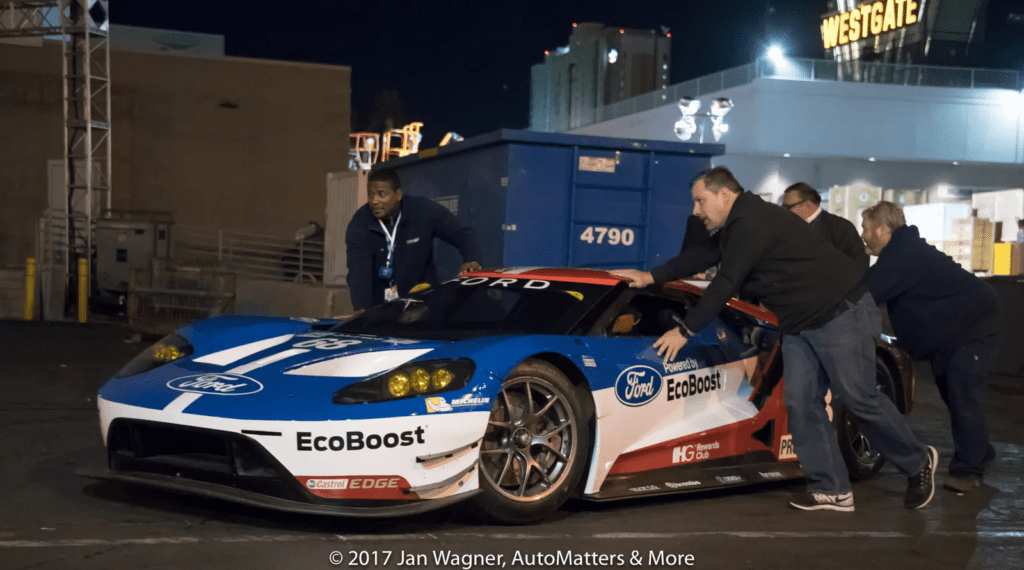


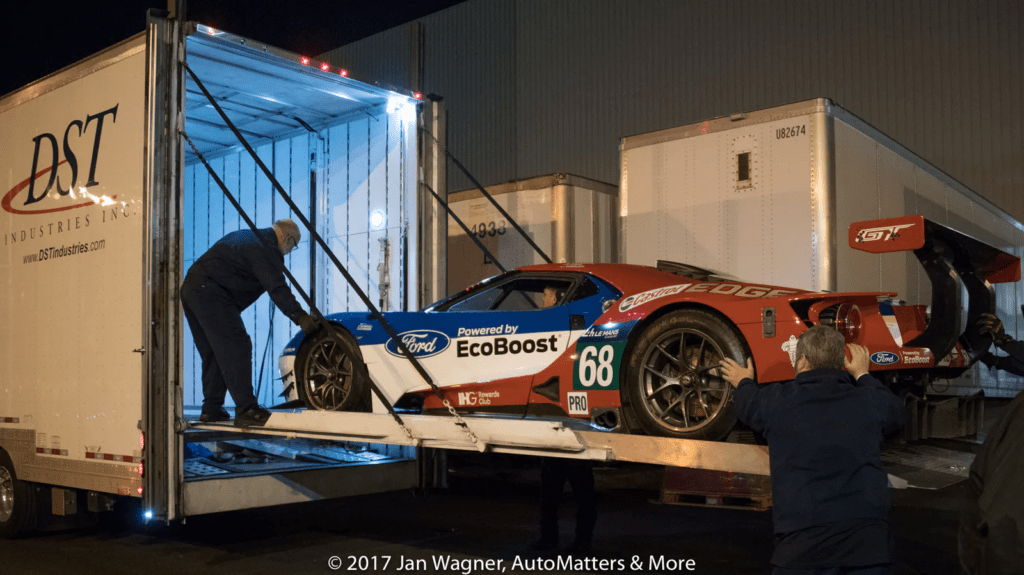
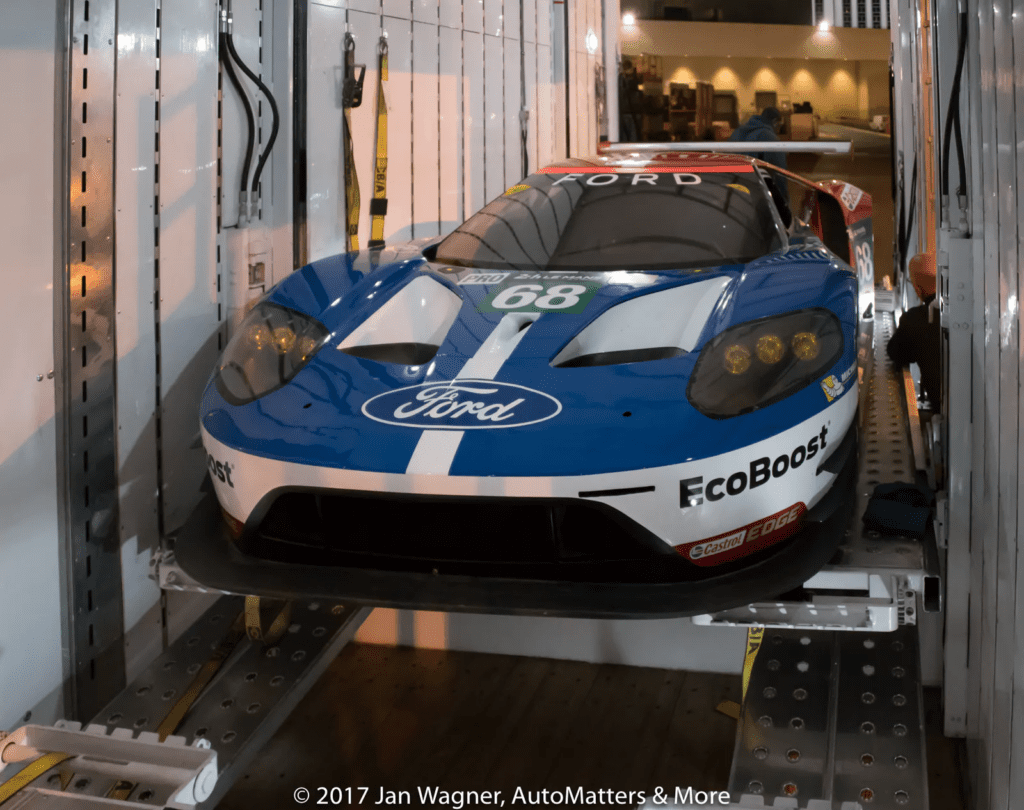
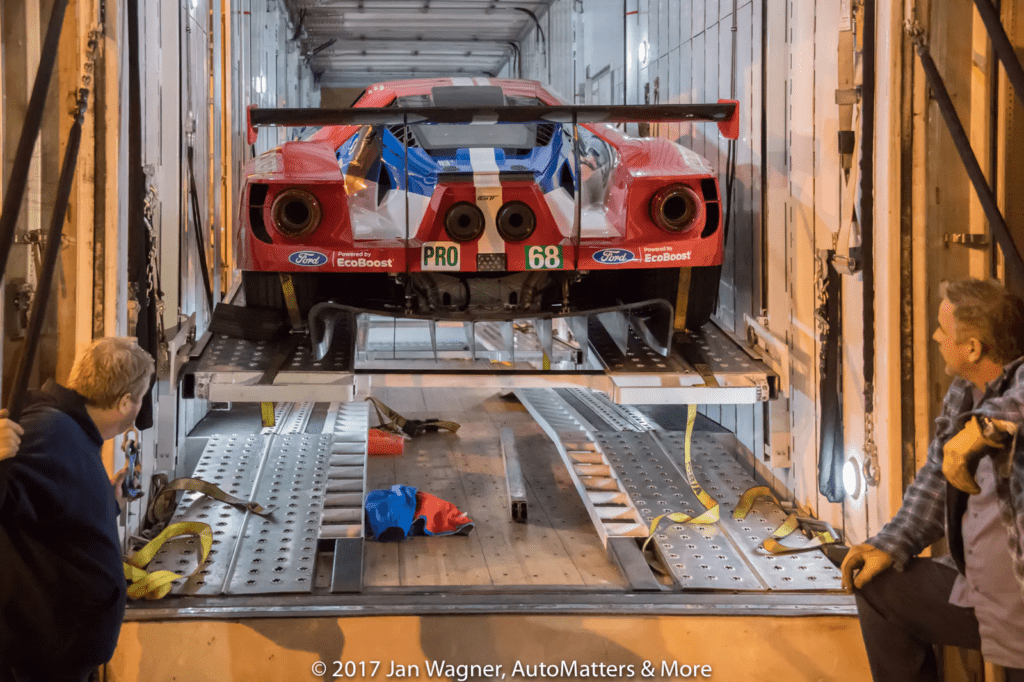
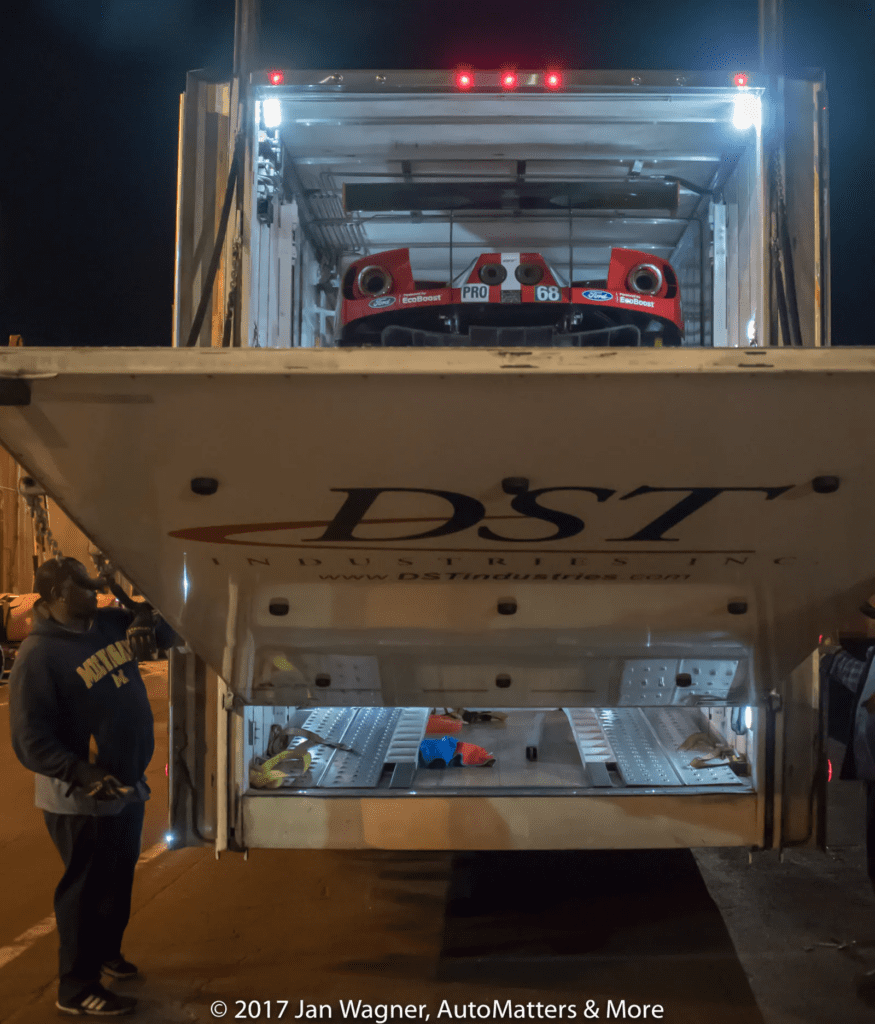

The street version of the new Ford GT was a highlight of the 2017 San Diego International Auto Show. It looks very much like the Le Mans racecar – minus the red, white and blue paint scheme. Its lightweight carbon fiber body, supported by aluminum structures, is an exciting mixture of buttresses, scoops and wings.
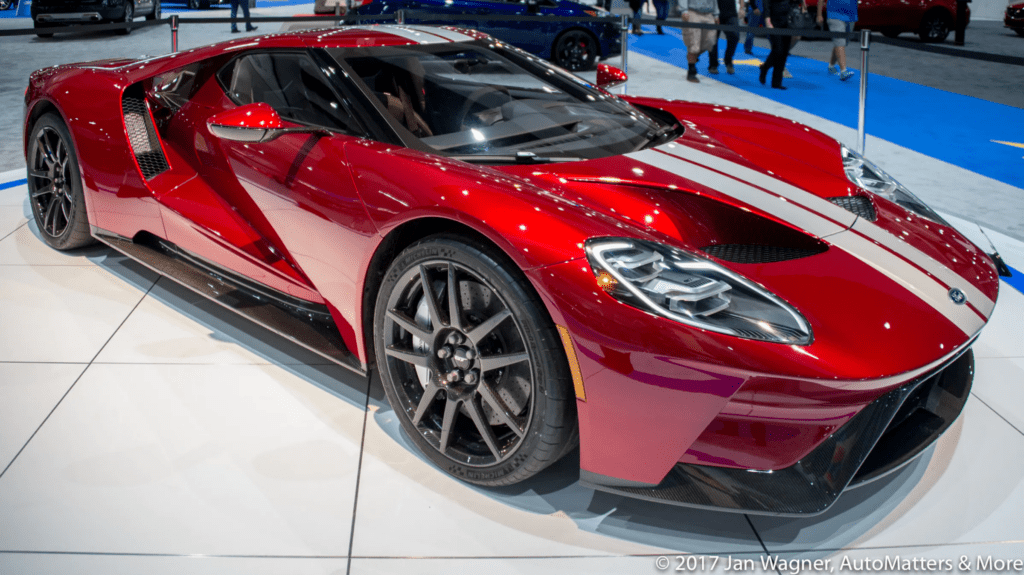

“The buttresses add strength to the chassis and guide airflow over the car while contributing to drag reduction and efficient airflow management. They also reduce the coefficient of drag and contribute to the downforce that optimizes handling and performance.” When deployed, the rear wing “can even change shape to optimize airflow and squeeze out just that extra bit of performance.”
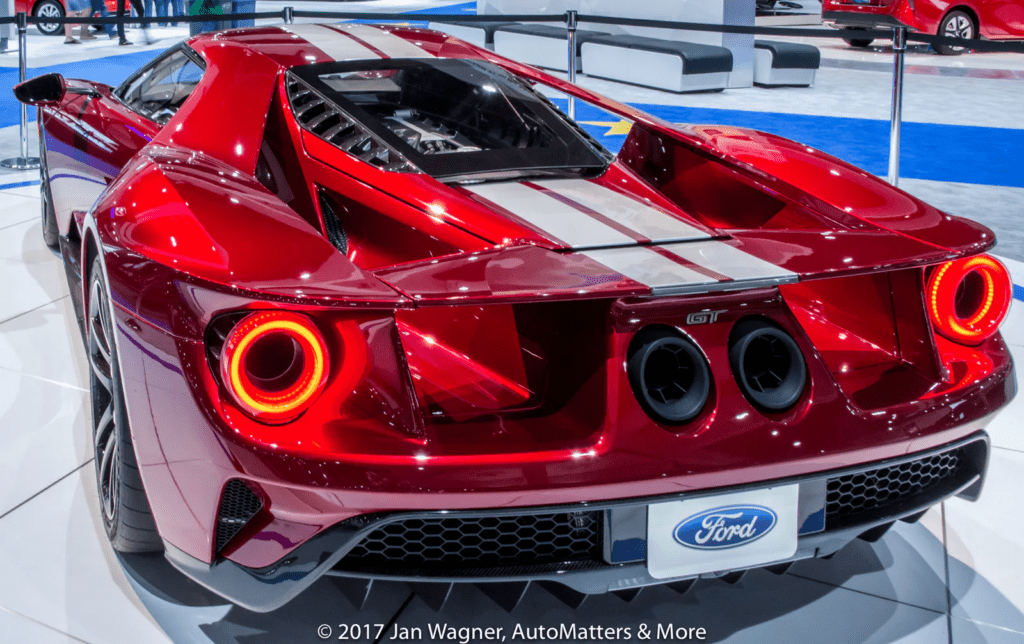
Its 3.5-liter, twin turbocharged and intercooled, EcoBoost V6 engine produces an estimated 600+ horsepower, as it lies under a cover of Gorilla Hybrid Glass – the same material that is used for the windscreen and backlight. “The exhaust is incorporated into the midsection of the bodywork to maximize diffuser performance at the bottom and to maintain airflow over the top of the body.” “The air inlets just ahead of the rear wheels feed cooling air to the intercoolers, and also act as inlets for engine air intake.” The lightweight battery is lithium-ion.
The suspension is independent front and rear, with electronic active damping and a pushbutton activated front lift system. There are five selectable drive modes with two variable ride height settings. Brakes are Brembo carbon ceramic (six pistons front and four rear). The tires are Michelin Pilot Sport Cup 2: 245/35-20 up front and 325/30-20 in the rear. The 20-inch wheels (8.5-inch front and 11.5-inch rear) are one-piece forged aluminum.
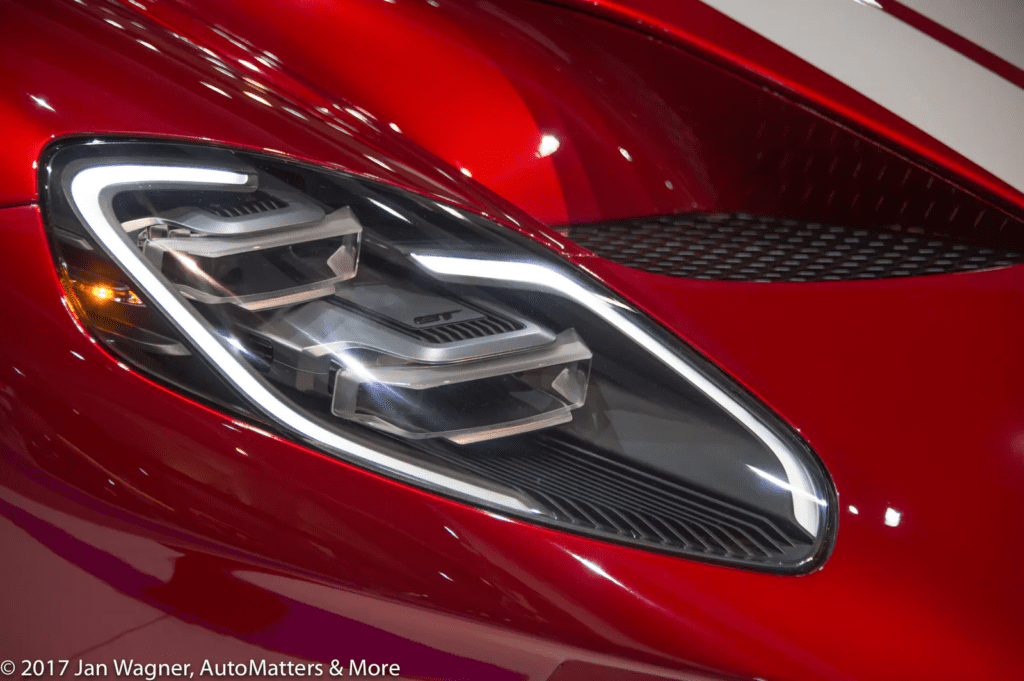
Aerodynamics include a speed-activated, deployable rear wing and airbrake. Headlamps and taillamps are state-of-the-art LEDs.
Climb inside the matte carbon fiber passenger cabin and you’ll find fixed carbon fiber Sparco seats; a racing-inspired steering wheel with integrated illuminated shift lights; a carbon fiber pedal box with adjustable, lightweight, black anodized aluminum pedals; a driver-configurable 10.1-inch color instrument cluster; a 6.5-inch center LCD touch screen with swiping and pinch-to-zoom capabilities; a SYNC 3-enhanced voice recognition communications and entertainment system; a voice-activated touch-screen navigation system; active noise cancelling systems; intelligent access with push-button start; and – something that drivers will find especially helpful – a rear view camera. Channeling the prodigious engine power to the rear wheels is a seven-speed, dual clutch, automated manual transmission with sequential shift controls (paddles).

For more information about the street version of the Ford GT and to configure a virtual one, go to www.ford.com/performance/gt/. Unfortunately, according to that website, “the application window for the Ford GT is now closed.”
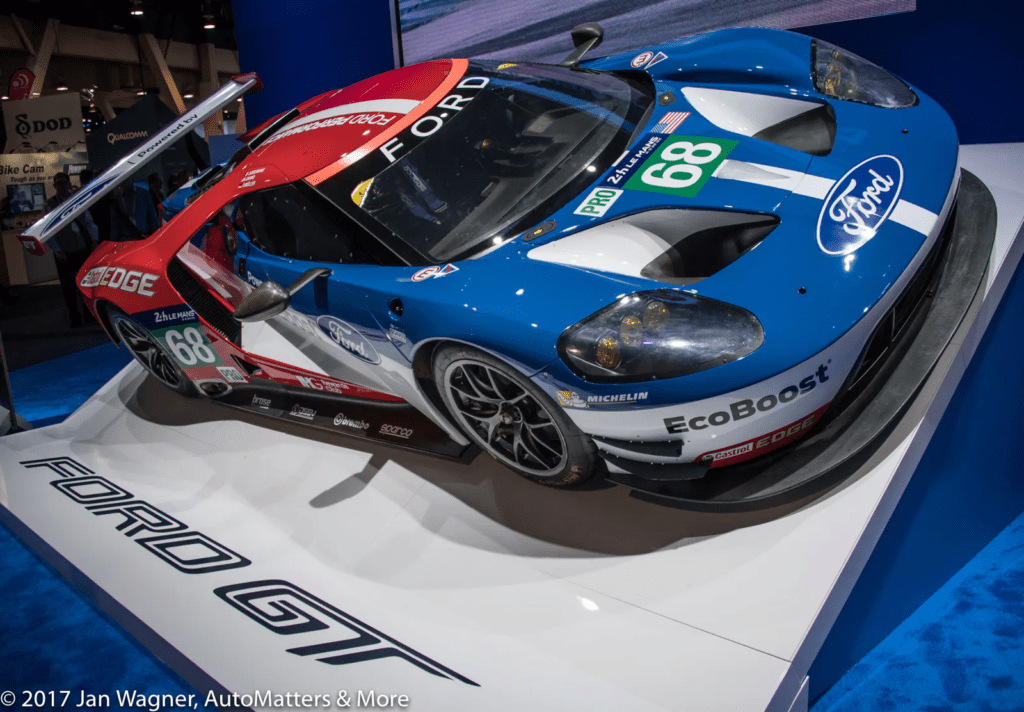
Copyright © 2017 by Jan Wagner – AutoMatters & More #474r1
